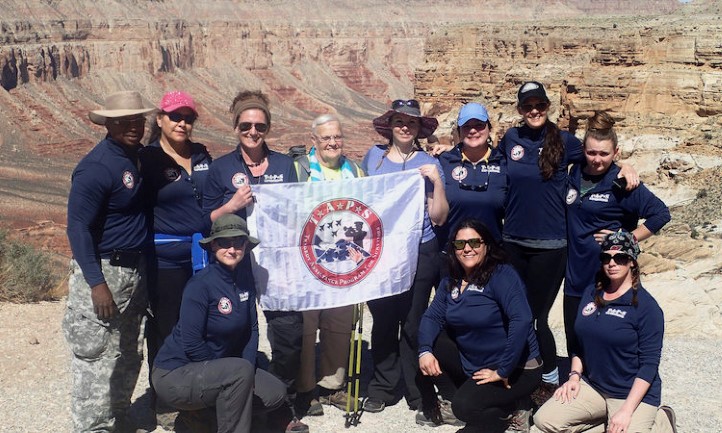Gold Star Families: We Are the Best Versions of the Worst-Case Scenarios
Author: Emily Munoz

I’ve been a nightmare at multiple points in my life. I’m pretty sure my younger brother can vouch for that. So, frankly, can Sallie Mae (I’m sorry, but I just couldn't handle those coupon books), my tax preparer (I love you, Amy!) and anyone with whom I’ve ever shared a hotel room.
I think on some level we all want to live the dream. Maybe this means we have the job we always wanted or we’ve given birth to children pretty enough to be on “Toddlers and Tiaras” and smart enough to be in the Scripps National Spelling Bee. Living the dream could be about freedom or security, it could mean a life in the spotlight or nights on back-country trails. Maybe it’s about waking up to certain people, or maybe it’s about waking up every day in our version of the Barbie Dream House. We learn early which dreams probably are not going to happen (having a pet unicorn), which ones require lots of work (earning scholarships or excelling in athletics) and which ones can, if tempered a little bit, shape the way we prioritize our lives.
I was still working to ground some of my dreams in perseverance, reality, the limits of science and the hard truth that I wasn't going to Hogwarts, when my life changed overnight.
It’s hard not to sound overly dramatic, so let me be clear. I’m blessed beyond anything I deserve; more than a fair share of beauty has come my way. In many ways, I do have a dream life. But in the military community, when you become a survivor — when the knock comes to your door — you become the worst-case scenario.
And as the Barbie Dream House elevator breaks for good, hurtling us sickeningly into some uncharted despair, it breaks for others, too. In our community, becoming a survivor means that the “worst nightmare” for military families is a clear and present danger. It’s a reminder of what can happen — how quickly and drastically things can go wrong.
It’s strange to suddenly be stuck in a life no one wants. It’s understood to be a completely undesirable scenario. It is a far cry from “living the dream.”
But today, I’m rejecting that. I am not the worst-case scenario. Surviving families do not have to be just the ones living the nightmare — we can be the ones lighting the nightmare, dissipating the panic of possibility with lives well lived. We can be the best versions of the worst-case scenarios, and instead of reminding people of the inherent dangers of military service, we can embody bravery, endurance and an unwillingness to let the death be the story.
From the pen of...
Emily Muñoz, Director of TAPS Health and Wellness Initiatives, is living a personal campaign to be the person her late husband Army Capt. Gilbert Muñoz loved — and is using the Inner Warrior program to empower survivors to do the same.
